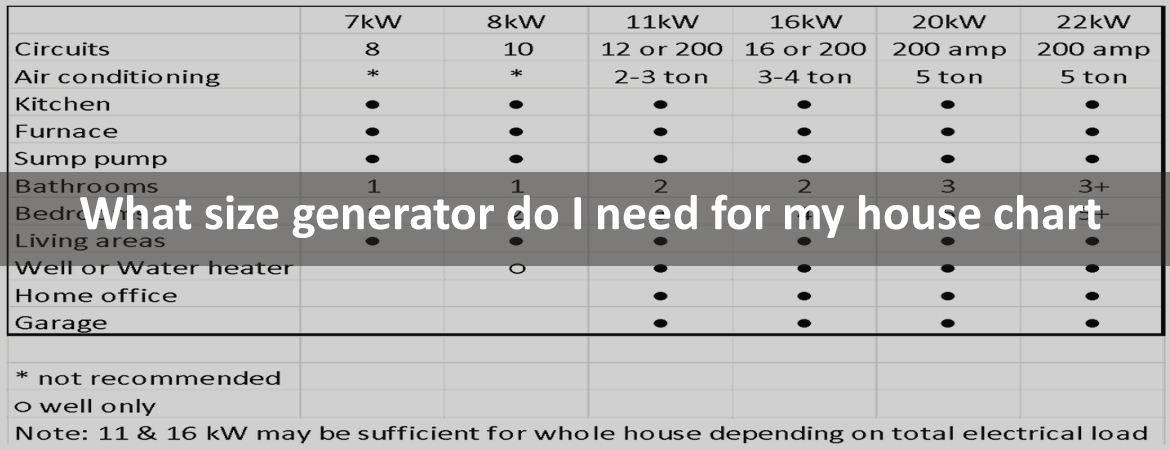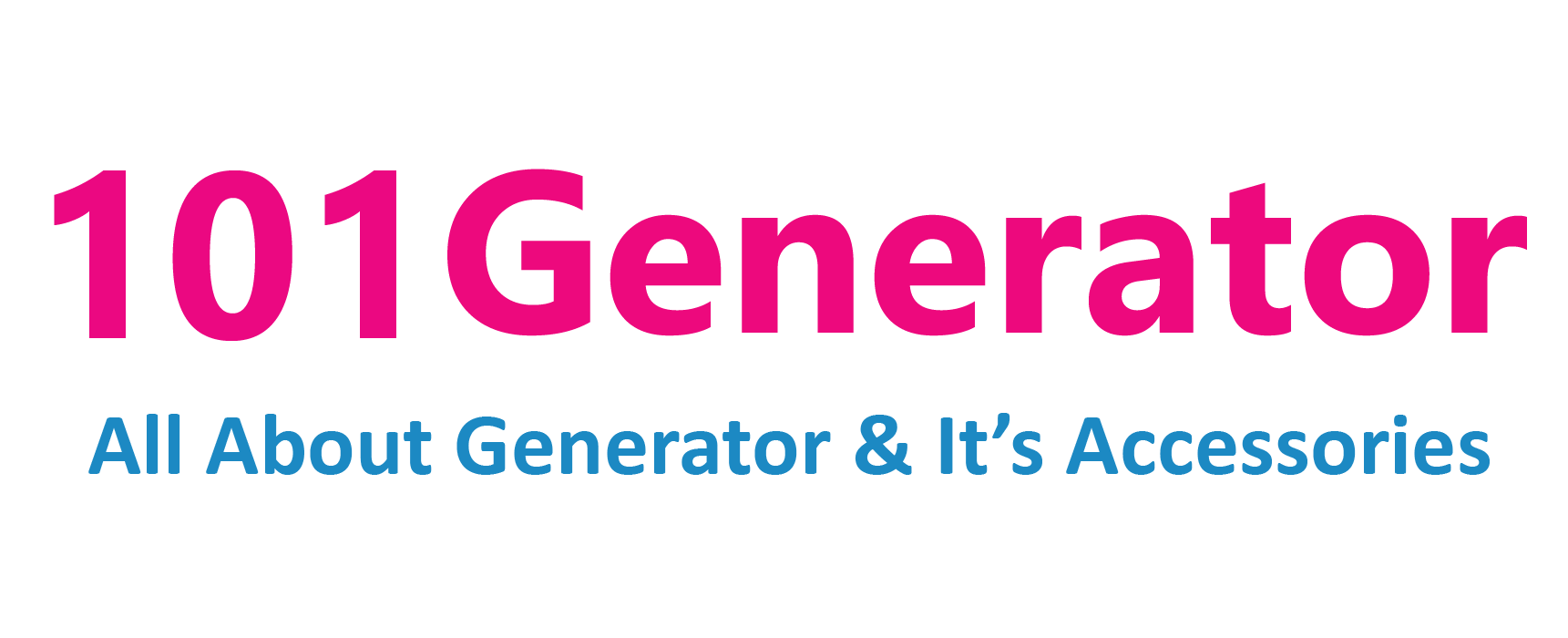Post Disclaimer
101 Generator is supported by its audience. When you purchase through links on our site, we may earn an affiliate commission. Learn more

What size generator do I need for my house chart
What size generator do I need for my house chart?
Need Of Generators:
When an emergency power outage happens, the need to run the home appliance safely becomes the greatest need than ever which then rises the concerns of the food getting spoiled, disrupted smart appliances that can stop you from working, and many other reasons for which the electricity is a prime factor.
The generator is the ultimate solution in such a crisis and the precise need of the wattage for several appliances helps you in choosing the best fit generator for your house chart.
What Size Generator Do I Need For My House Chart?
Requirements:
Does the question then arise about the fact that what size generator I need for my house chart? The answer lies in the few factors and features that must be considered. The first and foremost need to check upon is what are the appliances that must be run continuously and therefore requires a constant supply of electricity.
Size:
For a whole house, the generator size options get rated in the measure of kW which is abbreviated for kilowatt which measures the overall load or capacity of handling in a generator. For having a good whole-house power solution generator, the ideal choice for the size of the generators must be 20kW. The bigger homes will run smoothly with a 26-36kW range home generator.
Appliances:
For home chart generators, the wattage usually ranged higher to run multiple appliances including refrigerators, freezers, air conditioners, microwave ovens, lighting circuits, well pumps, smart appliances, and whatnot. The household equipment is critically needed to be run by a generator of size 5000 to 7500 watts.
Different Wattage Needs:
As the technology has evolved over time, there exist hundreds of models of various appliances with different wattage requirements and hence it creates the need to select a generator, which is sufficient and safe to use for all household equipment of various wattages.
These then require the house owners to calculate the best-estimated wattage of their home appliances and look for the generator with the bigger wattage supply to protect the appliances from any fluctuations or damage.
Disaster-Prone Areas:
The list of requirements doesn’t just end here, another consideration includes the question of whether you live in a disaster-prone area or not. If yes, then getting a larger generator would be an excellent long-term investment since it will give you additional peace of mind even though it is expensive.
If the budget is uptight and you need to look for an affordable solution, smaller-size generators can be the option that can help with blackouts by providing not-to-run heavy-duty appliances like refrigerators, air conditioners, or freezers.
Need Of Generators:
The need for generators is increasing day by day due to electricity failure or uncertain load shedding that can interrupt the daily routine. These circumstances have led to increased demand for generators for various purposes and use.
Factors To Consider:
A generator that can fit the whole standby unit is usually defined for the whole house. The features and requirements with different demands by each consumer have raised the question of what size generator do I need for my house.
Here it requires a detailed consideration of the electronics and appliances that will be powered by the standby generator.
Potential buyers demanding a generator for their house need an extensive backup-sized generator for powering their house appliances including kitchen electronics such as refrigerators, microwaves, electric kitchen utensils, and ranging house appliances like televisions, air conditioners, and light circuits, and other appliances that vary from home to home.
Size Of The Generator:
The recommended size of the generator must possess power between 5000 to 7500 watts which easily coved up all the estimated and calculated wattage requirements of the house.
The generator must be big enough to power up the whole house but smaller and compact enough to adjust in-house boundaries.
The generators, as advanced through time, the inverter technology has been in high demand as it offers minimal decibel level and it is eco-friendly which doesn’t affect the neighbors as well.
Suggestion:
Champion Power Equipment 100519 6250-Watt is a suitable fit for a house standby generator equipped with inverter technology that offers quiet operation along with its use and efficient energy usage. The generator overall covers all the appliances in the house under a single engine with little or no short circuit or spark production.
Related Articles:
